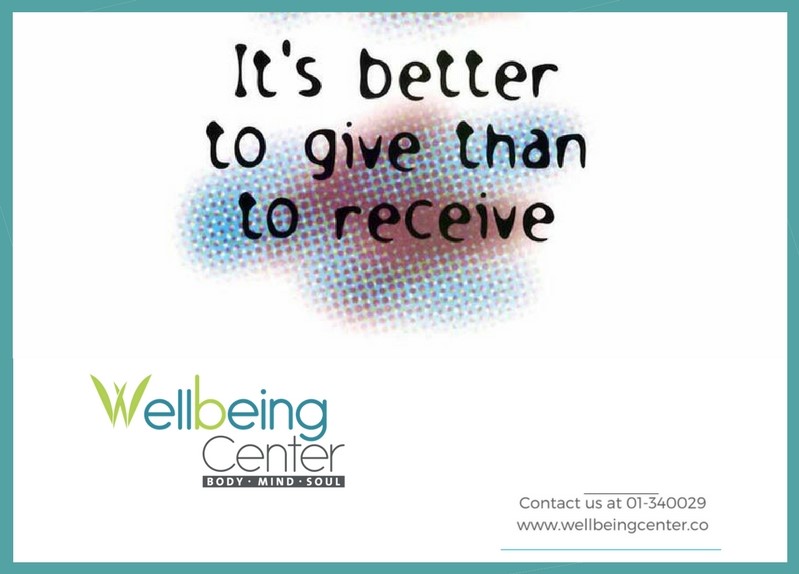We Love to Give

Most of us love to give and across cultures and religions, giving is recognized as essential to goodness.
“The wise man does not lay up his own treasures. The more he gives to others, the more he has for his own.” — Lao Tzu
In addition to feeling good and spreading goodwill, many people report that giving feels easier for them than receiving. One major reason may be that when we are giving – we are in charge.
We love giving advice far more than receiving it.
We take great pains to give directions (GPS or not) although it is difficult to ask for directions ourselves.
Receiving is Complicated
Although receiving can feel wonderful, life saving and heartwarming, it is perhaps more complicated than giving.
The ease and joy of receiving is often associated with our early attachments and history.
For some, the essentials of care and love have always been given, so they find it easy to trust and receive.
For some being the recipient connotes need, dependency and expectancy. It is avoided because it has too often been associated with anxiety and disappointment.
For others, the hesitation to receive comes with fear of expectations- to be happy, to be grateful, to reciprocate, to commit- which they fear they may not be willing or ready to do.
It ‘s worth considering that in life giving and receiving come with tremendous benefits and of course some risks. We really don’t know how the other will receive our gift any more than we know for sure how we will feel when someone gives to us.
Connection in life can’t happen unless we take risks.
If in our relationships, we never risk receiving, we take from others the joy of thinking about and giving to us. We also never find out the joy of receiving that in many cases comes without expectation.
If we are in relationships where we are rarely giving and mostly receiving – we miss the joy of thinking about and lighting up someone’s life even for a day. Others miss the joy of feeling that they matter enough for us to make the effort to give to them.
You can reduce the risks of giving and receiving by considering the following:
Do You Give In A Way That Makes Receiving Easy?
Can you give without expectation? – Is it still a gift even if there is no thank you?
Can you give of yourself in a way that may take more time but mean much more – like the gift of a weekly movie night with Grandma instead of another sweater?
Can you give what the other needs – rather than what you need to give?
Can you give without strings – is the gift free of you entitlement to control or dictate its use?
The manner of giving is worth more than the gift. (Pierre Corneille)
Do You Receive in a Way that Makes Giving Possible?
Are you so selfless that you are unable or unwilling to receive gifts? – This may make you untouchable.
Are you able to appreciate the giver’s intent such that the reality of the actual gift doesn’t matter?
Can you accept the gift without presuming it comes with historical expectations of control or payback?
Can you receive a compliment without correcting or invalidating the giver?
Can you welcome help as generosity rather than implication of dependency or need?
God has given us two hands, one to receive with
